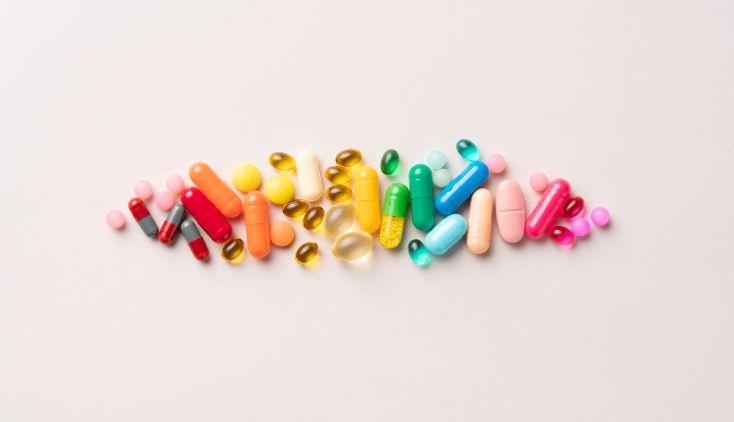Effective Strategies and Treatment Options
Drug addiction is a complex and often overwhelming condition that affects individuals and their families. Whether it stems from opioids, stimulants or other substances, addiction can take a severe toll on physical health, mental well-being, relationships and daily functioning. Fortunately, recovery is possible and increasingly accessible. Today, a wide range of evidence-based strategies, treatment centers and medications, like Suboxone, offer support for those seeking to break free from the grip of addiction.
Understanding Addiction as a Disease
Addiction is recognized by medical professionals as a chronic brain disease that alters the brain's reward system and impairs self-control. It is not simply a lack of willpower or a moral failing. Drugs hijack the brain’s ability to regulate behavior and decision-making, making it incredibly difficult for someone to stop using without help. Because of its complex nature, addiction recovery typically requires a multifaceted approach that addresses both physical dependence and psychological factors.
The Role of Addiction Treatment Centers
One of the most effective ways to begin coping with drug addiction is by entering a specialized addiction treatment center. These facilities provide structured, supportive environments where individuals can focus entirely on their recovery. In the United States, treatment centers range from inpatient residential programs to outpatient services and intensive partial hospitalization programs.
Residential or inpatient programs are ideal for individuals with severe addiction or co-occurring mental health disorders. These programs provide 24-hour medical supervision, detox services, counseling, group therapy and life skills training in a secure and substance-free environment. Facilities such as Hazelden Betty Ford Foundation, Caron Treatment Centers, and the Meadows in Arizona are highly regarded for their comprehensive, evidence-based care.
Outpatient programs allow patients to live at home while attending scheduled therapy sessions and classes. These are typically best for individuals with a supportive home environment and a less severe addiction. Outpatient care can serve as a step-down from inpatient treatment or as a starting point for those not requiring 24-hour supervision.
For individuals with limited financial resources or without insurance, many states offer publicly funded treatment options. The Substance Abuse and Mental Health Services Administration (SAMHSA) provides a national treatment locator tool, which can help individuals find affordable or sliding-scale services in their area.
Medication-Assisted Treatment (MAT) and Suboxone
In recent years, Medication-Assisted Treatment (MAT) has emerged as one of the most effective ways to manage opioid addiction in particular. MAT combines behavioral therapy with FDA-approved medications to treat substance use disorders. This approach helps normalize brain chemistry, reduce cravings and improve treatment retention.
One of the most commonly used medications in MAT is Suboxone, a combination of buprenorphine and naloxone. Buprenorphine is a partial opioid agonist, which means it binds to opioid receptors in the brain but does so less intensely than full opioids like heroin or oxycodone. This reduces cravings and withdrawal symptoms without producing the same high. Naloxone is added to deter misuse, as it blocks the effects of opioids if the medication is injected.
Suboxone can be prescribed in outpatient settings, making it a flexible and accessible option for many. Studies have shown that individuals taking Suboxone as part of a comprehensive treatment plan are significantly more likely to remain in recovery and avoid relapse. Other medications used in MAT include methadone, which is dispensed at certified clinics, and naltrexone, an opioid antagonist that blocks the effects of opioids altogether.
While MAT is highly effective, it is most successful when paired with counseling and therapy. Psychological support helps individuals understand the root causes of their addiction, develop coping strategies and rebuild their lives.
The Importance of Counseling and Peer Support
Therapy plays a vital role in recovery from drug addiction. Cognitive Behavioral Therapy (CBT), Dialectical Behavior Therapy (DBT) and Motivational Interviewing are commonly used approaches. These therapies help patients recognize negative thought patterns, regulate emotions and strengthen motivation to change.
Peer support groups, such as Narcotics Anonymous (NA) or SMART Recovery, also provide a valuable community of understanding. Group meetings allow individuals to share experiences, receive encouragement and stay accountable. For many, these connections become an essential part of long-term sobriety.
Family therapy can also be crucial. Addiction often affects loved ones, and involving family members in treatment can help repair relationships, establish healthy boundaries and create a supportive home environment.
Building a New Life in Recovery
Coping with addiction is not just about stopping drug use; it’s about creating a life that supports sobriety. This means building healthy routines, finding meaningful activities, securing stable housing and addressing mental health issues such as anxiety or depression. Recovery is a lifelong process that involves personal growth, self-discovery and resilience.
Many individuals in recovery benefit from vocational training, educational programs and employment assistance offered by treatment centers or community organizations. These services help people regain independence and confidence as they reintegrate into society.
Help is Available
Overcoming and coping with drug addiction is a challenging journey, but it is one that countless people have walked successfully. With the help of addiction treatment centers, medications like Suboxone, professional therapy and strong peer support, individuals can break the cycle of addiction and begin to heal.
The path to recovery is not easy, but with the right support and commitment, it is entirely within reach. Whether you're seeking help for yourself or a loved one, know that hope and help are available, and that recovery is possible.
Keep reading to learn more about C-PTSD and PTSD.
